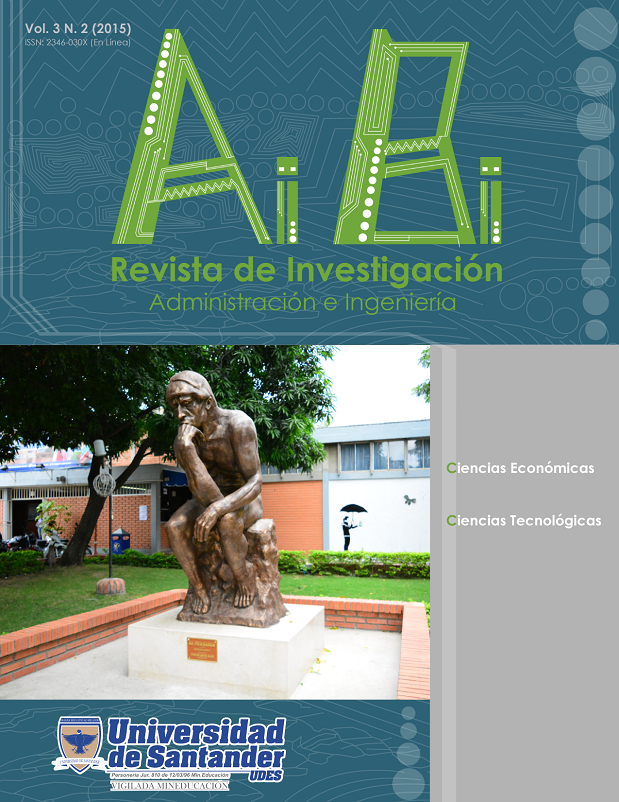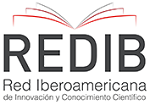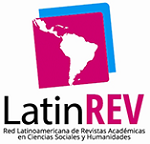Socio-environmental theoretical model for a strategic a sustainable tourism management in Caparo hydroelectric complex Uribante complex Táchira and Mérida states Venezuela.
Keywords:
Strategic Management, Sustainable Development, Sustainable Tourism, Uribante-Caparo Hydroelectric Complex. Socio – Environmental Theoretical Model.Abstract
The lack of management and strategic planning of tourist activities has resulted in the fact that a sustainable tourism can not be developed. These reasons led to the creation of a Socio-Environmental Theoretical Model for Sustainable Tourism Strategic Management in Uribante-Caparo Hydroelectric Complex (CHUC) at the Táchira and Mérida states (Venezuela). The research was developed through a qualitative ethnographic method, set in the interpretative paradigm. Three mayors from the Uribante, Libertador and Santa Maria de Caparo-Mérida Municipalities;, 5 community members were diagnosed through depth interviews with six key informants (2 managers CHUC 1 Superintendent from Tapo-Caparo National Park. Siberia (1) Barker (3) and Santa Maria de Caparo (1), including members of the Community Council. The investigator recorded 15 field notes from observations made at different times during the study. The most striking findings were: there are many natural beauties and tourist potential, the population has cultural traditions, CHUC has an infrastructure and reservoirs that constitute an international tourist attraction, the region natural and social potential is projected as a permanent potential for sustainable tourism. The proposed model relates: a) culture tourism and ecotourism; b) Sustainable tourism and sustainable tourism culture; c) tourism and tourism management; d) The tourism management and ecotourism, to achieve quality of life, comprehensive resource conservation, economic unification of the environment and community integration.
References
Fussler, C. Eco-Innovación: Integrando el Medio Ambiente en la Empresa del Futuro. Madrid Ediciones Mundi-Prensa, España, 1999.
Azuaje, E. Pensamiento Gerencial. Ediciones Urania, Caracas, Venezuela, 2005.
Morin. E. Introducción al Pensamiento Complejo. París. Editorial Gedisa. Ciencias cognitivas. Serie CLA-DE-MA, Francia, 1990.
Bacci, M y Francés, A. Plan de competitividad de Turismo del Estado Anzoátegui. Informe final mimeografiado Caracas: Consultoría IESA, Venezuela, 2001.
Firat, F. Humanistic marketing; beyond the marketing concept. En Firat, f, Dholaki, N y Bagozzi, R (Compiladores): Philosopbical and radical thougbt in marketing. Lexington, MA: Lexington Books, 1987.
Murphy, P. Tourism: a community approach. Nueva York: Methuen, USA., 1985.
Burkart, A. y Medlik, S. Tourism, past, present and future. Oxford: Butterworth-Heinemann, USA., 1974.
Francés, A. Turismo, Competitividad y Estrategia. Caracas-Venezuela. Ediciones IESA.
Journal of Sustainable Tourism. Some Fundamental Truths About Tourism: Understanding Tourism's Social and Environmental Impacts, 1993.
EDITUR. Por y para todos... Turismo 2020. Plan del Turismo Español Horizonte 2020, Ed. Editur, Madrid, España, 2007.
Pezzey, L. Estratégias de transição para o século XXI. In: Bursztyn (Org.) Para Pensar o DesenvolvimentoSustentável. Brasiliense, São Paulo, Brasil, 2003.
Downloads
Published
How to Cite
Issue
Section
Downloads
License
The journal offers open access under a Creative Commons Attibution License

This work is under license Creative Commons Attribution (CC BY 4.0).








